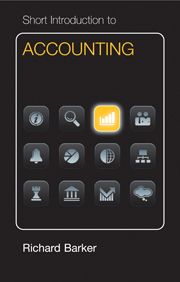Introduction
Published online by Cambridge University Press: 05 June 2014
Summary
Your choice to read this book is probably determined by a perception that accounting is important, coupled with a sense that your own knowledge of accounting, at least at present, is insufficient for your needs.
In this introductory chapter, we will explore these motivations – in effect, why you are reading this book. This will be important in setting the scene for the rest of the book. The focus will be on you, on why an understanding of accounting is important for you, and on how best you can get your mind around the subject.
We will first explore why knowledge of accounting is important. This will help in motivating your study and contextualizing and making sense of the content of this book. We will then explore why accounting is typically perceived to be a difficult and impenetrable subject. This concerns a more subtle motivation for you, namely that you have probably chosen an introductory book because anything else might feel daunting. Such feelings are typical, but actually may not be well placed. Understanding why people typically find accounting difficult, or perhaps more accurately why they perceive it to be difficult, will help greatly in making it simpler and in giving you confidence in your learning.
- Type
- Chapter
- Information
- Short Introduction to Accounting , pp. 1 - 10Publisher: Cambridge University PressPrint publication year: 2011

